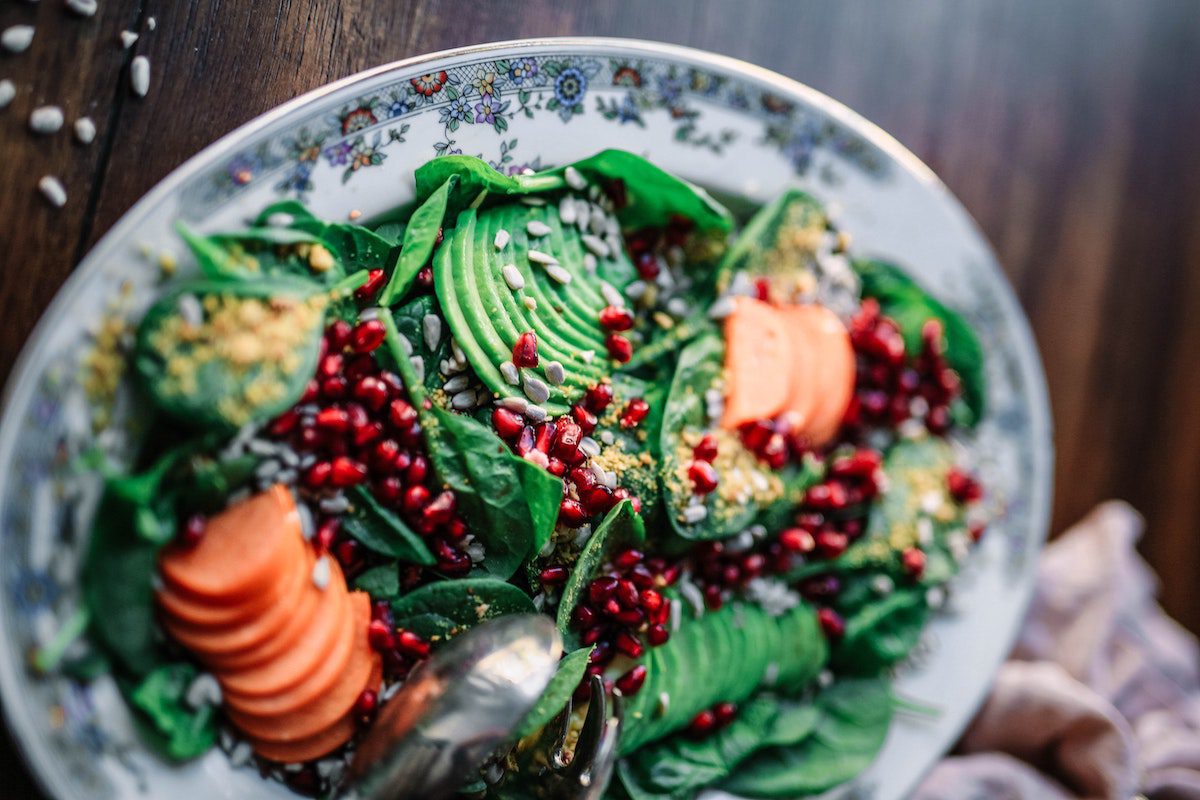Our bodies are like intricate machines and there are many different biological processes involved in fertility. Whether you’re trying to conceive or just looking to optimize your fertility to improve your overall health and vitality, food choices can have a major impact. Nourishing food can help improve egg quality, support menstrual cycle regularity, and increase nutrient stores to prep the body for pregnancy.
A Mediterranean-style diet has been shown to be supportive for optimal fertility, however this doesn’t make it a one size fits all approach. Every body has unique nutritional needs that depend on each individual’s preferences, restrictions, activity level, culture and beliefs. These are some guidelines for eating a fertility-promoting diet and will provide tools for incorporating nutritious foods into your meals and for finding a balance that works for you.
Foods to Emphasize for Optimal Fertility
- Whole Foods: Diets higher in fast food have been shown to increase the risk of infertility, while whole food diets that are plant forward are fertility promoting (5). Eating a well-balanced, whole foods diet will provide ample fiber, antioxidants and minerals to nourish your body for preconception. Below are some examples of delicious whole foods that you can start to incorporate into your diet.
- Fruits & Veggies: Work on adding in fresh produce to your diet and aim for 8-10 servings of fruits and vegetables per day. Green veggies like spinach, asparagus, broccoli and brussels sprouts are rich in folate, a vital nutrient for preconception and early pregnancy because of its role in preventing neural tube defects. Sulfur containing vegetables (think garlic, onions, cabbage, cauliflower and broccoli) can improve glutathione levels, which helps with embryo development and sperm quality. Antioxidant packed fruits like blueberries, blackberries, pomegranate, oranges, and grapefruit are anti-inflammatory and helpful for overall egg and sperm quality.
- Good Quality Proteins: Emphasize fatty fish, eggs and plant proteins over red meat and processed meat for optimal fertility. Plant proteins like chickpeas and lentils are packed with fertility supporting nutrients like fiber and folate. Eggs are rich in choline, another important nutrient for preconception. Choline needs increase during pregnancy and play an important role in baby’s brain development and help prevent neural tube defects.
- Healthy Fats: Choose anti-inflammatory omega-3 fat sources like fish, walnuts, chia seeds, flax seeds and hemp seeds. Avocados, olives, nuts and nut butters, seeds and tahini are other great sources of healthy fats to include! Some fats and oils are considered pro-inflammatory because they are highly processed, often with a lot of heat that can damage the delicate oils, causing them to go rancid. Try replacing processed vegetable oils like canola, soybean and corn oil with olive oil or avocado oil. Trans fats should also be avoided because they have been shown to increase infertility risk. Trans fats are found in processed foods and fried foods and are often labeled as partially hydrogenated oils.
- Slow-Burning Carbohydrates: Carbs often get a bad rep because the unrefined varieties cause blood sugar spikes (think white bread, pasta, cake). However, slow-burning carbs like whole grains, beans, legumes, and starchy vegetables contain fiber to help slow down the release of glucose into your bloodstream. Slow-burning carbs are also best paired with protein and healthy fats for optimal blood sugar balance.
- Full-Fat Dairy: Full-fat dairy has been shown to be favorable over low-fat dairy for fertility, likely because the higher amount of fat helps stabilize blood sugar. Dairy products also provide a source of calcium and iodine. If you tolerate dairy, choose organic, full-fat dairy products. If not, look for unsweetened dairy alternatives and be sure you’re getting adequate iodine and calcium in your diet from other foods. Tofu, dark leafy greens, tahini and sardines are excellent sources of calcium. Seaweed and seafood are great to include for iodine.
- Water: The best beverage to include for fertility is water! Hydration is important for detoxification, transferring nutrients to our cells and helps with healthy production of cervical mucus. Keep a water bottle by you during the day to increase your water consumption. If you’re bored with plain water, try out sparkling water or try infusing your water with fresh fruit or mint.
Next Steps
As you are starting to make changes to your diet to optimize your fertility, I encourage you to focus on what you can add in rather than what you should be limiting or cutting out. Hopefully this list will help you start to think about ways that you can add in more nourishing foods throughout the day. If you’re looking for one-on-one support for goal setting and making dietary changes, you can book a nutrition and wellness coaching appointment here!
References
- Adeoye, O., Olawumi, J., Opeyemi, A. and Christiania, O., 2017. Review on the role of glutathione on oxidative stress and infertility. JBRA Assisted Reproduction, [online] 22(1), pp.61-66. Available at: https://www.ncbi.nlm.nih.gov/pmc/articles/PMC5844662/ [Accessed 15 September 2021].
- Chavarro, J., Rich-Edwards, J., Rosner, B. and Willett, W., 2007. A prospective study of dairy foods intake and anovulatory infertility. Human Reproduction, [online] 22(5), pp.1340-1347. Available at: https://academic.oup.com/humrep/article/22/5/1340/2914869?login=true [Accessed 15 September 2021].
- Chavarro, J., Rich-Edwards, J., Rosner, B. and Willett, W., 2007. Diet and Lifestyle in the Prevention of Ovulatory Disorder Infertility. Obstetrics & Gynecology, [online] 110(5), pp.1050-1058. Available at: https://journals.lww.com/greenjournal/Fulltext/2007/11000/Iron_Intake_and_Risk_of_Ovulatory_Infertility.17.aspx[Accessed 15 September 2021].
- Chavarro, J., Rich-Edwards, J., Rosner, B. and Willett, W., 2007. Dietary fatty acid intakes and the risk of ovulatory infertility. The American Journal of Clinical Nutrition, [online] 85(1), pp.231-237. Available at: https://academic.oup.com/ajcn/article/85/1/231/4649371?login=true [Accessed 15 September 2021].
- Grieger, J., Grzeskowiak, L., Bianco-Miotto, T., Jankovic-Karasoulos, T., Moran, L., Wilson, R., Leemaqz, S., Poston, L., McCowan, L., Kenny, L., Myers, J., Walker, J., Norman, R., Dekker, G. and Roberts, C., 2018. Pre-pregnancy fast food and fruit intake is associated with time to pregnancy. Human Reproduction, [online] 33(6), pp.1063-1070. Available at: https://academic.oup.com/humrep/article/33/6/1063/4989162?login=true [Accessed 15 September 2021].
- Silvestris, E., Lovero, D. and Palmirotta, R., 2019. Nutrition and Female Fertility: An Interdependent Correlation. Frontiers in Endocrinology, [online] 10. Available at: https://www.frontiersin.org/articles/10.3389/fendo.2019.00346/full [Accessed 15 September 2021].
More information about SRM’s Wellness Program can be found here. Chelsea Fechtner, our Nutrition and Wellness Coach, is leading a free PCOS Wellness Support Group starting Tuesday, Nov. 9th, register soon!




